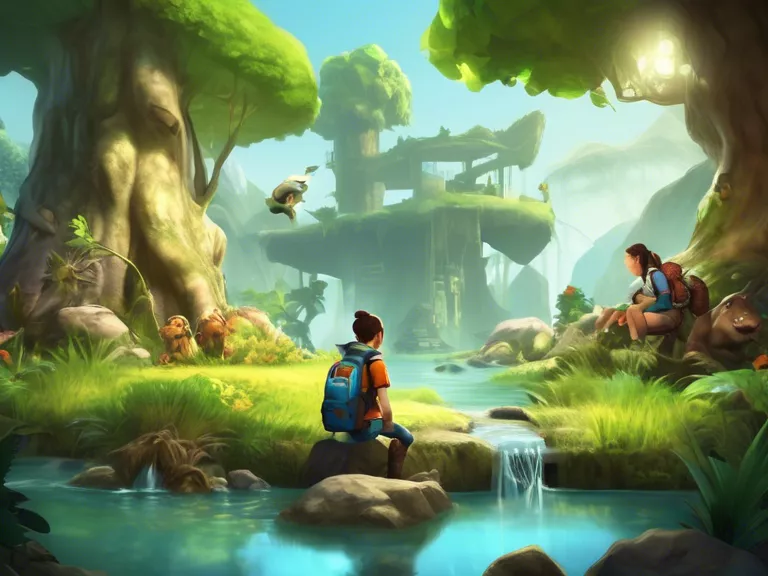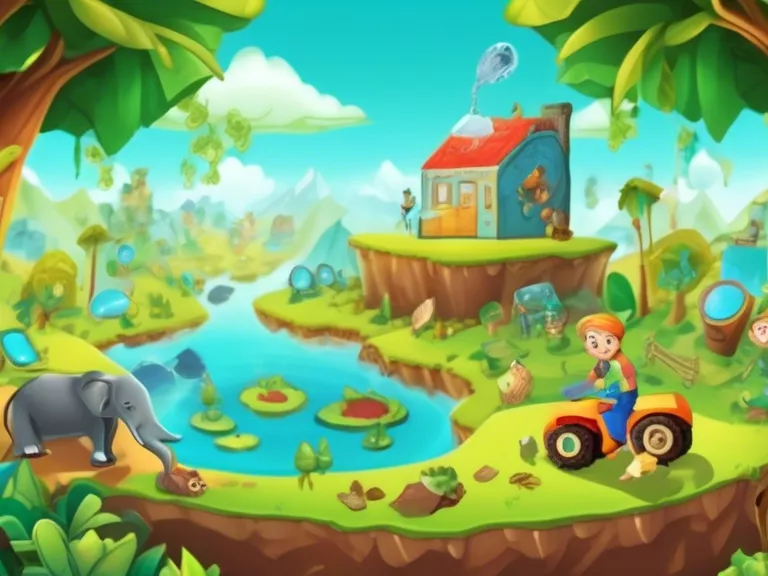
Introduction
Environmental education is a crucial aspect of raising awareness about sustainability and climate change. In recent years, the gaming industry has emerged as a powerful platform for educating and engaging players on environmental issues. Through interactive gameplay and storytelling, environmental education in gaming has the potential to reach a wide audience and inspire real-world action.
The Rise of Environmental Themes in Gaming
Gaming has evolved from being solely entertainment to a medium for exploring complex themes, including environmental conservation and climate change. Developers are increasingly incorporating environmental storylines, challenges, and mechanics into their games to educate and engage players in a meaningful way. Games such as "SimCity," "Eco," and "Farming Simulator" are examples of titles that simulate environmental scenarios and encourage players to make decisions that impact virtual ecosystems.
Benefits of Environmental Education in Gaming
Engaging and Interactive Learning
Gaming provides a unique opportunity for hands-on, interactive learning. By immersing players in virtual worlds, environmental education in gaming allows individuals to experience the consequences of their actions in a safe and controlled environment. This experiential learning approach can enhance understanding and retention of environmental concepts.
Fostering Empathy and Action
Through compelling narratives and gameplay mechanics, environmental games have the power to evoke empathy and emotional connections with virtual environments and wildlife. By placing players in the shoes of environmental stewards or conservationists, these games can inspire real-world action and advocacy for environmental causes.
Building Problem-Solving Skills
Many environmental games require players to solve complex challenges related to resource management, pollution control, and sustainable development. By engaging in strategic decision-making within the game, players can develop critical thinking and problem-solving skills that are applicable to real-world environmental issues.
Challenges and Opportunities
While environmental education in gaming offers significant benefits, there are also challenges to consider. Ensuring the accuracy of environmental information, addressing potential biases, and reaching diverse audiences are key challenges faced by developers and educators. However, by collaborating with experts in environmental science and education, game developers can create more impactful and inclusive educational experiences.
Conclusion
Environmental education in gaming has the potential to be a powerful tool for raising awareness about sustainability and inspiring positive change. By leveraging the immersive and interactive nature of gaming, developers can engage players in meaningful learning experiences that transcend the virtual world. As the gaming industry continues to evolve, incorporating environmental themes and education can help shape a more informed and environmentally conscious global community.



